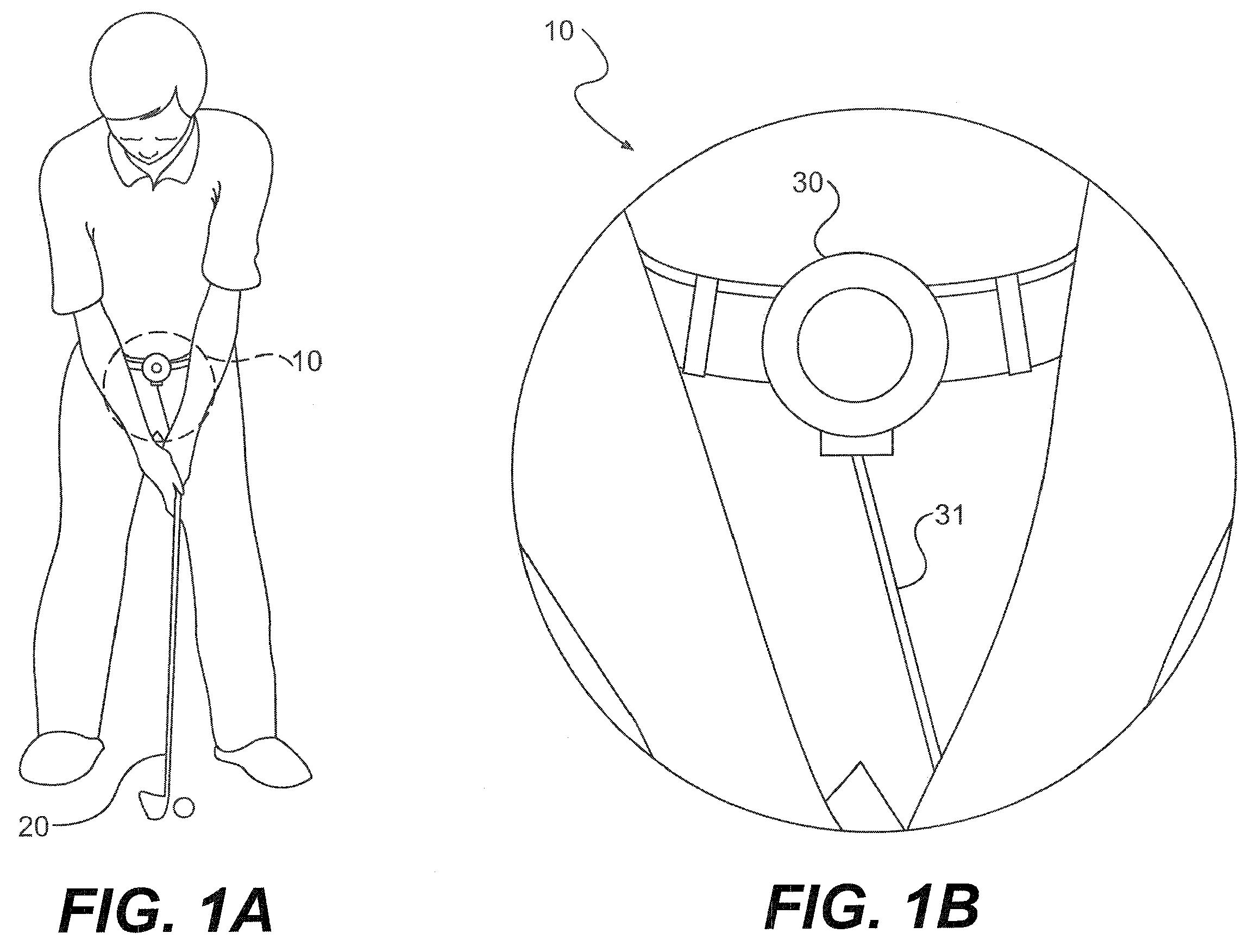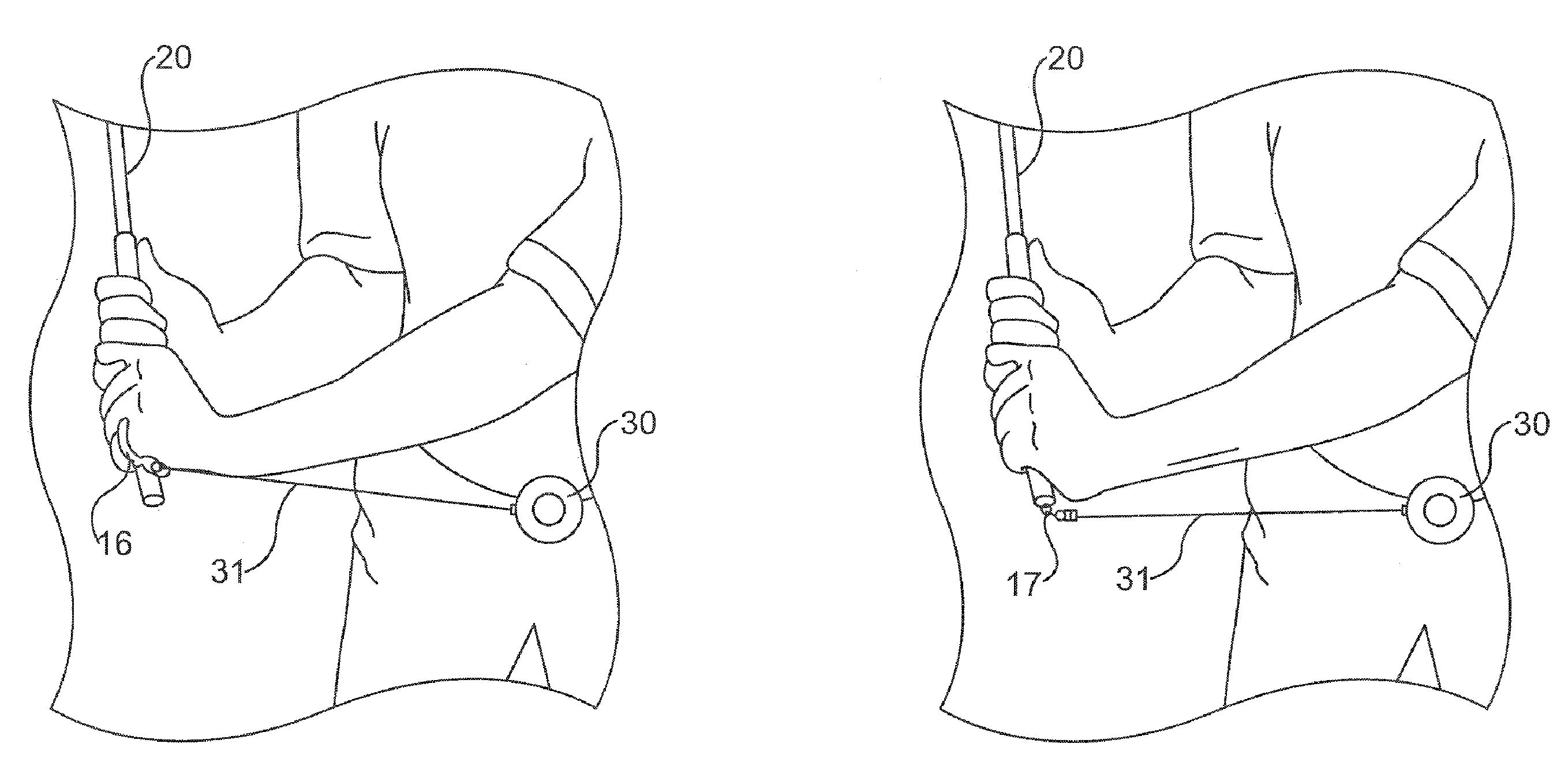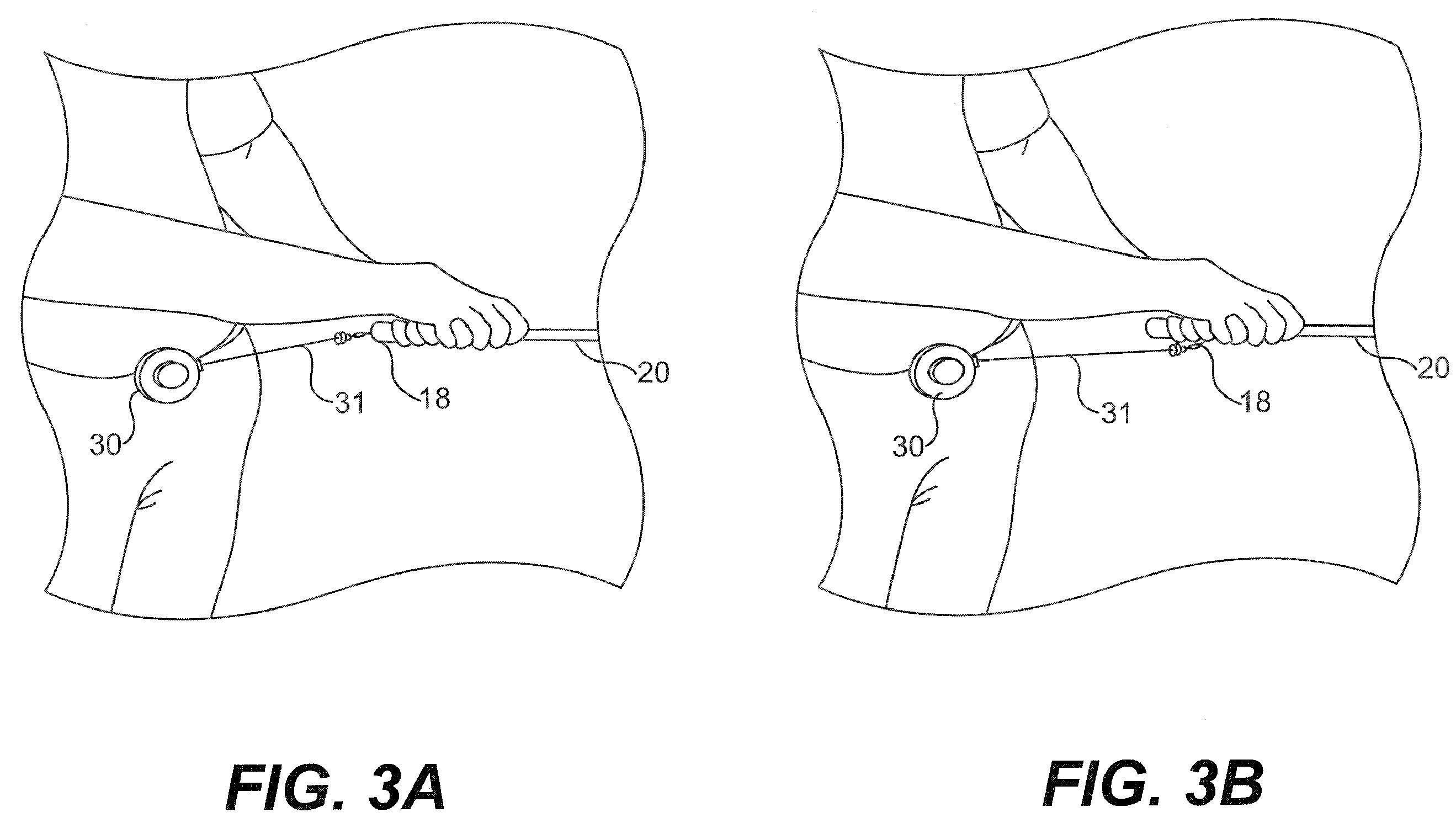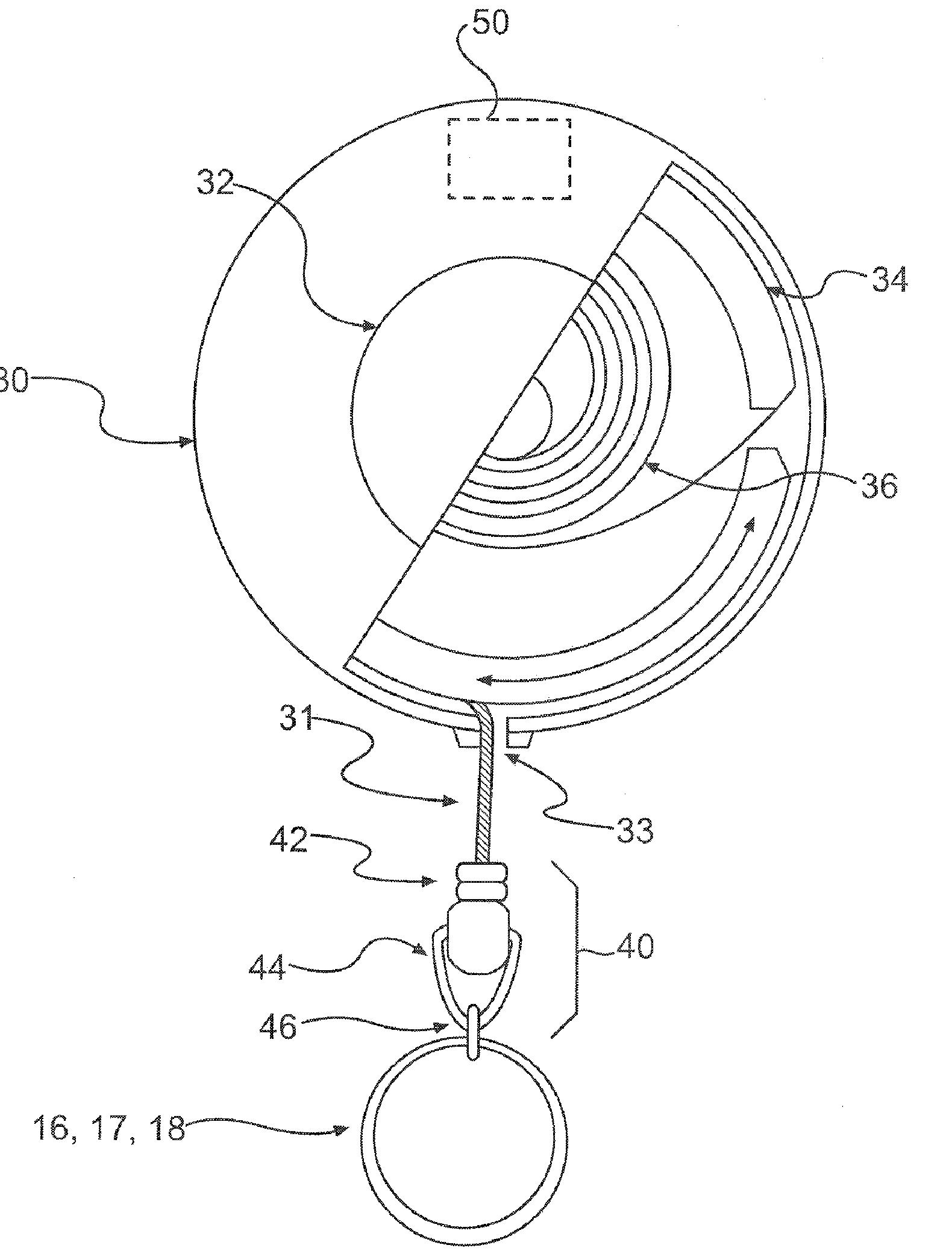I am not quite sure what to make of this invention. Part of me likes it; but the realist in me says “come on Dave, you would never actually use that.” It is interesting nonetheless.
The invention that I am referring to is disclosed in a patent application that recently published as US Pub. No. 20080214319 titled “Golf Swing Device.” The application describes the invention as:
A golf device is provided that includes a storage mechanism to store information related to a desired swing of a golf club, and a swing identifying device to identify when the golf club has moved a desired distance based on the stored information related to the desired swing.
Not a great description, but the following figures explain everything.




It is intriguing, but looks rather hard to accurately set the backswing limit. The application explains:
[0029] More specifically, the swing training device may operate, in at least one embodiment, such that when the golfer takes a practice backswing as shown in FIG. 2A, the cord 31 extends from or is extracted from the housing 30 to a length that is dictated by the backswing of the golfer. When the golfer reaches the desired backswing position, the cord 31 has extended a specific length from the housing 30. The specific length is indicative of the golfer’s desired backswing for a future backswing (e.g. during an actual swing/stroke). At the desired backswing position in the practice backswing, the golfer may depress a button or other mechanism on the housing 30 so as to store, program, maintain and/or identify information related to the specific length of the cord 31 that has been extracted or extended from the housing 30. This information may be used in a subsequent backswing such as immediately prior to the golfer actually hitting a golf ball. The golfer may also store, program, maintain and/or identify information related to movement of the golf club and/or the golfer’s hand. This information may also be obtained in response to a golfer’s voice, for example. Because the swing training device has information to perform a desired backswing, the swing training device may audibly and/or physically inform the golfer when the golf club has again reached the desired backswing position. That is, during an actual swing, when the golf club 20 has reached the desired backswing position, the golfer may then swing the golf club in a forward manner and hit the golf ball. After the golfer hits the golf ball (or attempts to hit the golf ball), the golf club 20 may continue in a forward manner. This may hereafter be referred to as a forward swing or follow-through swing. During the follow-through swing, the golfer may be informed by the swing training device of a specific (or desired) forward swing position by an audible sound, a visual indicator and/or by feel of the cord 31. This indication may inform the golfer of the specific forward motion/position of the golf club 20.
Admittedly, the application does also disclose the following alternative to pressing a button to set the limit, but is it realistic?
[0030] Embodiments of the present invention are also applicable to storing, programming, maintaining and/or identifying information of a swing by techniques other than depressing a button. For example, a golfer may speak a specific voice command that is recognizable by the swing training device. The information may be stored, programmed, maintained and/or identified based on the voice command.
Another interesting golf invention.
David Dawsey – The Golf Training Invention Lawyer
PS – check out other golf training aid inventions here




